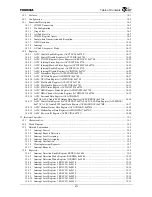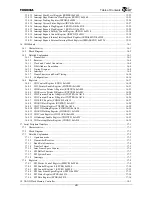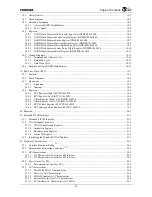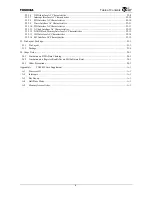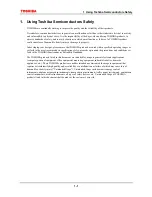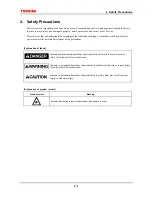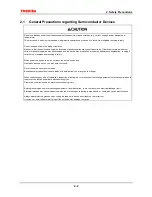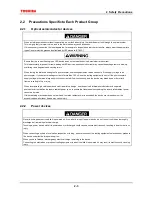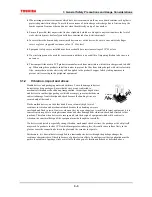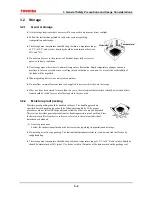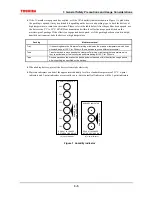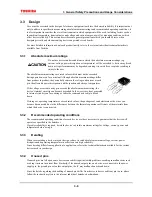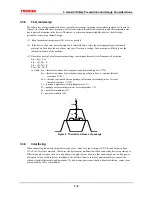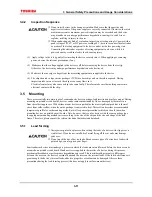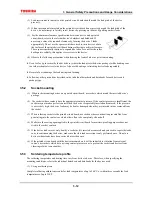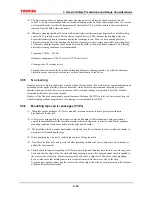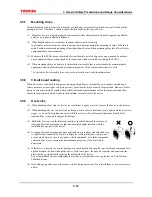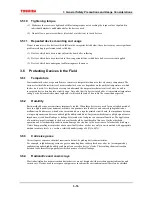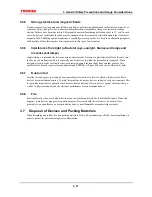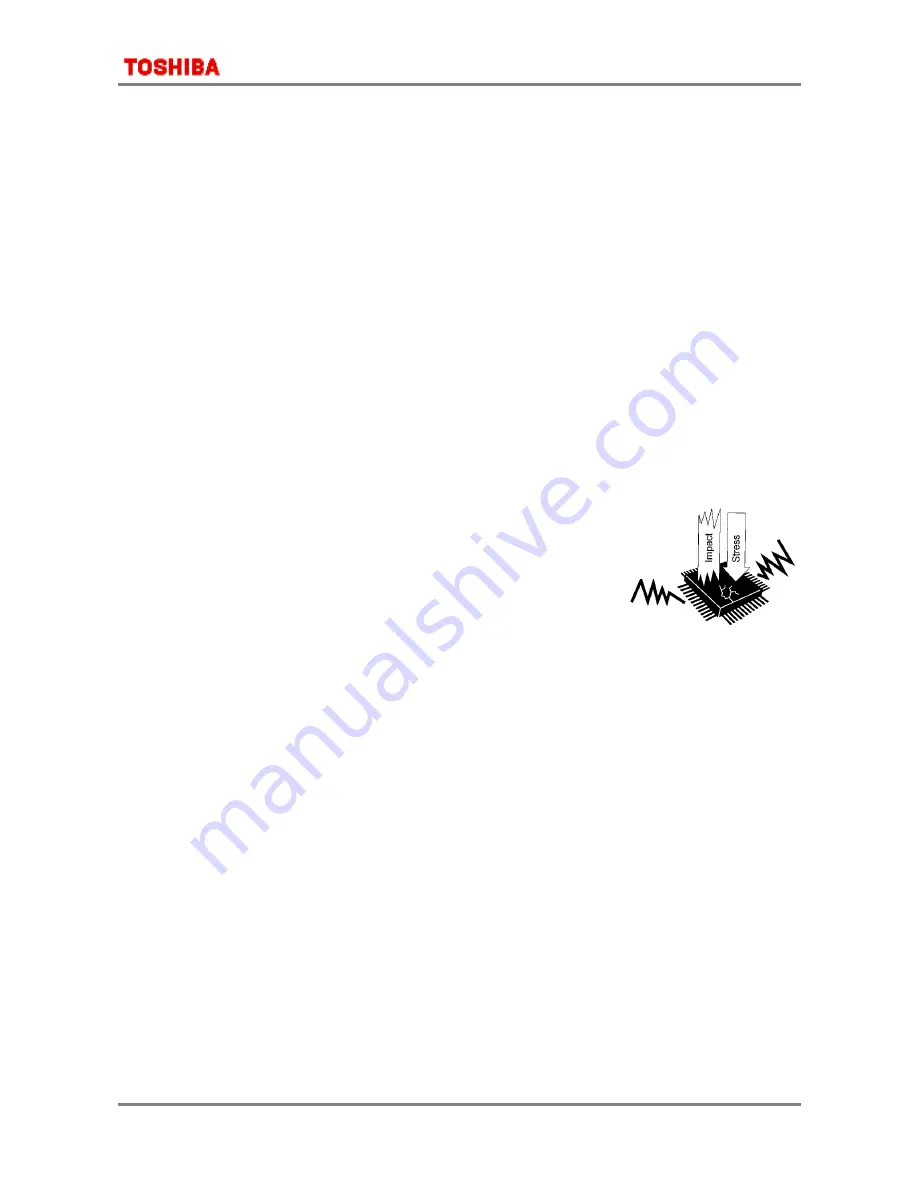
3 General Safety Precautions and Usage Considerations
3-3
•
When storing printed circuit boards which have devices mounted on them, use a board container or bag that is
protected against static charge. To avoid the occurrence of static charge or discharge due to friction, keep the
boards separate from one other and do not stack them directly on top of one another.
•
Ensure, if possible, that any articles (such as clipboards) which are brought to any location where the level of
static electricity must be closely controlled are constructed of anti-static materials.
•
In cases where the human body comes into direct contact with a device, be sure to wear anti-static finger
covers or gloves (suggested resistance value: 10
8
Ω
or less).
•
Equipment safety covers installed near devices should have resistance ratings of 10
9
Ω
or less.
•
If a wrist strap cannot be used for some reason, and there is a possibility of imparting friction to devices, use
an ionizer.
•
The transport film used in TCP products is manufactured from materials in which static charges tend to build
up. When using these products, install an ionizer to prevent the film from being charged with static electricity.
Also, ensure that no static electricity will be applied to the product’s copper foils by taking measures to
prevent static occuring in the peripheral equipment.
3.1.2
Vibration, impact and stress
Handle devices and packaging materials with care. To avoid damage to devices,
do not toss or drop packages. Ensure that devices are not subjected to
mechanical vibration or shock during transportation. Ceramic package devices
and devices in canister-type packages which have empty space inside them are
subject to damage from vibration and shock because the bonding wires are
secured only at their ends.
Plastic molded devices, on the other hand, have a relatively high level of
resistance to vibration and mechanical shock because their bonding wires are
enveloped and fixed in resin. However, when any device or package type is installed in target equipment, it is to
some extent susceptible to wiring disconnections and other damage from vibration, shock and stressed solder
junctions. Therefore when devices are incorporated into the design of equipment which will be subject to
vibration, the structural design of the equipment must be thought out carefully.
If a device is subjected to especially strong vibration, mechanical shock or stress, the package or the chip itself
may crack. In products such as CCDs which incorporate window glass, this could cause surface flaws in the
glass or cause the connection between the glass and the ceramic to separate.
Furthermore, it is known that stress applied to a semiconductor device through the package changes the
resistance characteristics of the chip because of piezoelectric effects. In analog circuit design attention must be
paid to the problem of package stress as well as to the dangers of vibration and shock as described above.
Vibration
Summary of Contents for TMPR4925
Page 1: ...64 Bit TX System RISC TX49 Family TMPR4925 Rev 3 0 ...
Page 4: ......
Page 15: ...Handling Precautions ...
Page 16: ......
Page 18: ...1 Using Toshiba Semiconductors Safely 1 2 ...
Page 40: ...3 General Safety Precautions and Usage Considerations 3 18 ...
Page 42: ...4 Precautions and Usage Considerations 4 2 ...
Page 43: ...TMPR4925 ...
Page 44: ......
Page 54: ...Chapter 1 Features 1 8 ...
Page 58: ...Chapter 2 Block Diagram 2 4 ...
Page 88: ...Chapter 4 Address Mapping 4 12 ...
Page 226: ...Chapter 8 DMA Controller 8 58 ...
Page 260: ...Chapter 9 SDRAM Controller 9 34 ...
Page 480: ...Chapter 15 Interrupt Controller 15 32 ...
Page 554: ...Chapter 19 Real Time Clock RTC 19 8 ...
Page 555: ...Chapter 20 Removed 20 1 20 Removed ...
Page 556: ...Chapter 20 Removed 20 2 ...
Page 564: ...Chapter 21 Extended EJTAG Interface 21 8 ...
Page 580: ...Chapter 22 Electrical Characteristics 22 16 ...
Page 588: ...Chapter 24 Usage Notes 24 2 ...

